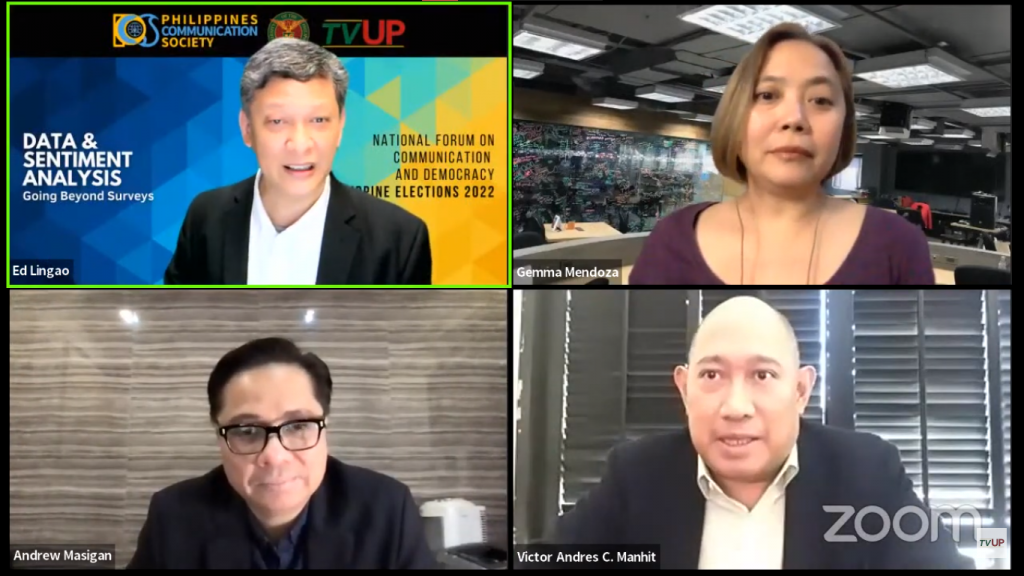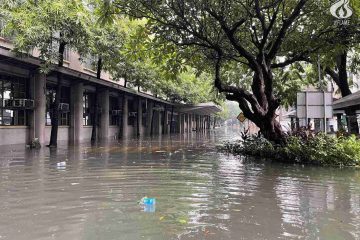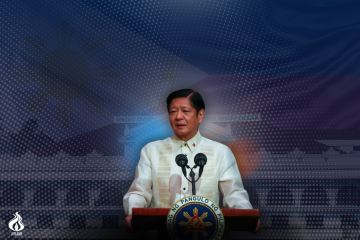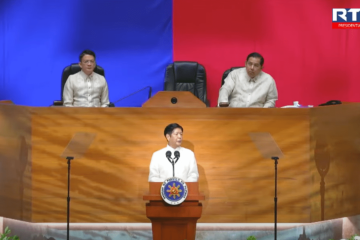
SOCIAL MEDIA plays a crucial role during election campaigns, but it could also be used to manipulate voters’ critical perception, data and political experts said.
Social data analytics could help assess the demands of target voters, but it could also be “used, abused, bended, and manipulated” to threaten voters’ perception, especially those who are undereducated, political analyst Andrew Masigan said.
“It (social media) gives us a real picture or a close enough picture of what these sentiments really are out there. But on the other hand, it gives the players in the arena to create realities, and these realities may not be accurate. These realities may be based on half-truths and disinformation or outright lies,” Masigan said during the “Data and Sentiment Analysis: Going Beyond Surveys” forum held last Feb. 9.
Political analyst Victor Manhit said extensive user data mining also allows political candidates to better locate and understand their voters, and construct campaigns in line with their interests.
“Realities also in any campaigns, you cannot do what we call blanket communication or shotgun approach, it needs to be targeted. And to be targeted it is to understand where your possible voters are, and how the best way to communicate with them—it is what I call a voter-centered campaign,” he said.
Campaign managers, Manhit added, could promote their candidates suited to what the public demands of them, without knowing they were being analyzed, he added.
“So people don’t even know that… ‘Ang galing naman ni candidate A, ito ang hinahanap ko. [Pero] di nila alam, inaral pala sila (Candidate A is good, this is what I am looking for. But they didn’t even know that they were being studied),” he said.
Manhit warned that data mining, which may allow candidates to effectively communicate with voters, could threaten privacy.
While personal data are protected by the Data Privacy Act, he pointed out that the law may also be “manipulated by other social media platforms that require their users to grant the networking service the consent to own whatever they post.”
“The mere fact you wanted to be part of the platform, you gave consent… you thought it was free. Engaging with your friends without realizing that the business side of it is understanding you,” Manhit said.
Masigan urged the public to scrutinize the candidates and to rely on debates and their platforms for information, not just on social media posts.
Diversified, harmful space
The diversified space of social media—where the press, citizens, and trolls are allowed to equally create content—has blurred the boundaries between facts, opinion, and disinformation, Rappler editor Gemma Mendoza sad.
“The problem right now [with social media], there is no gatekeeping at all [and] there is no verification,” Mendoza said.
“You have a space that is really diversified and information content contains narrative and messages that could influence voters,” she added.
Masigan cited the need for the international community to come together and establish protocols against disinformation.
“Disinformation and weaponizing the internet have escalated to such a point that it dictates the government, world order, and national security,” Masigan said.
“Data and Sentiment Analysis: Going Beyond Surveys” was the seventh installment of the National Forum on Communication and Democracy: Philippine Elections 2022 series. It was organized by the Philippines Communication Society in cooperation with the University of the Philippines’ television network. F — M. D. Jucom



